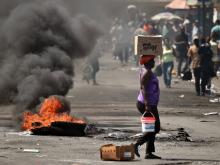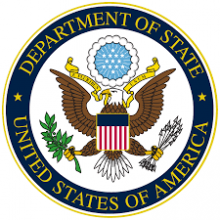Meet the Petrochallengers: A New Generation Wants Accountability
Below is a PRI article about the Petrochallengers - a (mostly) younger generation of activists who, rather than just changing heads of state, want to reform the underlying systems that prevent accountability, transparency, and justice. Corruption is so pervasive in Haiti that it is all too easy to become numb to it - but the misuse/outright theft of over a billion dollars in PetroCaribe funds was the last straw . These funds could have produced the roads, hospitals, schools, and environmental programming Haiti needed to get back on the right track. Without bringing those responsible to account, it remains business as usual. While they may not think of themselves as revolutionaries, bringing about a government that invests in its own people would be nothing short of revolutionary.









